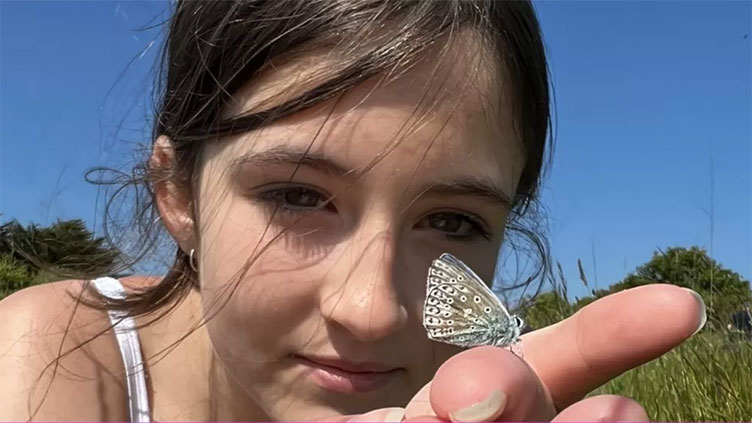UK butterfly numbers at highest level

Technology
The red admiral was most spotted across the UK with 248,077 being recorded in charity's research
(Web Desk) - The number of butterflies in the UK has risen to its highest level since 2019, according to conservationists.
Research by the Butterfly Conservation wildlife charity recorded more than 1.5 million butterflies and day-flying moths between 14 July and 6 August.
The red admiral was the most spotted across the UK with 248,077 being recorded in the charity's research.
But long-term trend figures show many species have significantly decreased since the count started 13 years ago.
Dr Zoe Randle said butterflies are a really good indicator of a healthy environment, adding that the insects have benefited from 2023's mixed weather.
"This summer has been a bit of a washout," she told the BBC. "The rain combined with the hot days has kept vegetation growing, to be lush and green for caterpillars to feed on.
"The red admiral had a really good summer this year - an increase of 338% of last year's count. That particular butterfly is doing well from climate change in the UK at least - it usually lives on the Mediterranean coast or north Africa."
Using data collected by volunteers across the country, scientists measured butterfly abundance and distribution levels of different species.
Dr Randle praised the public's help this year with the research, saying there was "really good engagement" this year.
"In all UK countries - Wales, Scotland, Northern Ireland and England - participation was up and also the number of counts was up which was fantastic," she said.
"It is really refreshing to see people participate. It is fabulous."
Conservationists believe butterflies have benefited from the wetter weather this year - with 12 butterflies recorded on average per count compared to nine in 2022's long periods of drought and heat.
According to the Big Butterfly Count, the gatekeeper was behind the red admiral as the second most-seen species with 222,896 sightings - an increase of 12% on last year.
But, long-term figures show a decrease of 28% since 2010 in the species.
White butterflies came third and fourth, with large whites seen 216,666 times and small whites 190,506 times - an increase of 11% and 15% on last year respectively.
Species which have declined since last year and over the long term include ringlet, common blue and speckled wood, according to the research.
Dr Richard Fox, head of science at Butterfly Conservation, said one of the biggest threats facing butterflies was "habitat loss".
"Butterflies need a place to live," he said. "If they can feed, breed and shelter, they can thrive."

